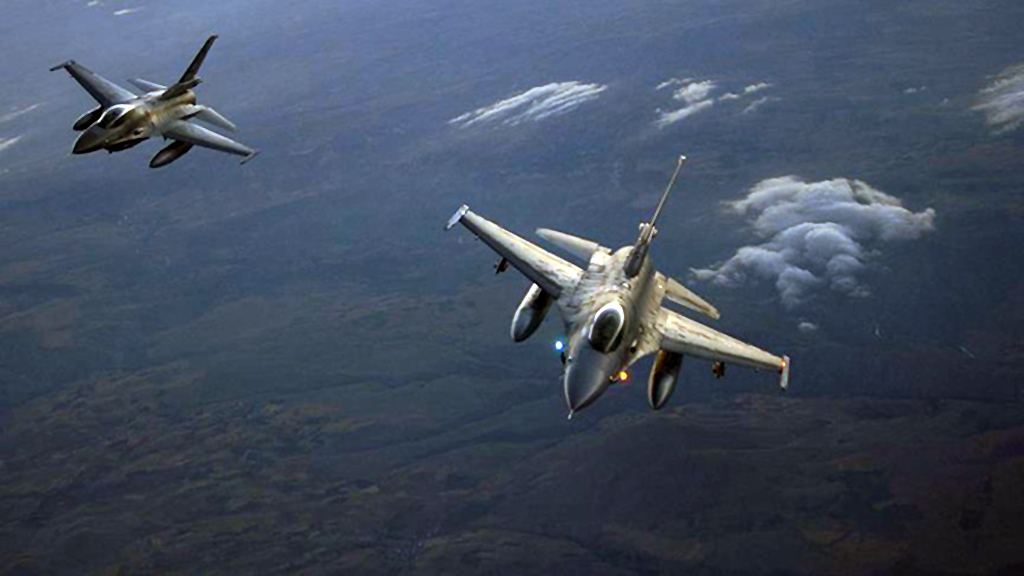
Is the new target Sinjar or Manbij and what does Turkey want to do?
Following successful counter terrorism operations in Northern Syria, Turkey resolute to entirely clean all of its borders with Syria and Iraq from terror elements
Share
he allotted time for the PKK to move out of Sinjar given by Turkey ended on March 17. Despite the PKK's announcement that it had retreated from Sinjar, it did not. The PKK is attempting to continue its presence there through a new formation called the Sinjar Resistance Units (SRU). Turkey is disturbed by this situation and there is a high chance of a military operation towards Sinjar.
At this point, it is beneficial to mention that there are ongoing negotiations with the Iraqi government and military officials. At the beginning of March, Chief of General Staff Hulusi Akar went to Baghdad and conveyed Turkey's worries about the problem of Sinjar and expectations from Iraqi soldiers. Similar to the announcement he made prior to the start of the Afrin operation, President Recep Tayyip Erdoğan stated the following two days after the end of the time given to the PKK, "We can enter Sinjar suddenly during the night." After this statement by Erdoğan, the Iraqi army announced that it had taken up positions in Sinjar on Monday. However, the PKK continues to be present there under the name of SRU. What will happen in this case? Turkey has clearly explained its decisiveness on the matter of Sinjar to the Iraqi government. The presence of the PKK in Sinjar is not just critical because of the establishment of the PKK in northern Iraq, but also because of the presence of the PKK in Syria. A majority of the weapons and logistical support provided to the PKK in Syria during the latest period came through Sinjar.
After Turkey began Operation Euphrates Shield in August 2016, the PKK quickly pulled some of its forces in Syria to Sinjar. From that day on, President Erdoğan frequently began saying, "We will not allow Sinjar to become a second Qandil." As is known, Qandil has been the PKK's central command for many years. Despite Qandil being an area Turkey has periodically conducted operations in, it has not been able to fully clear the presence of the PKK in the area.
Alongside Sinjar and Qandil, Turkey has put Manbij within the framework of its strategy in pre-emptively combating terrorism. At the statement given following the National Security Council meeting that happened in Ankara on Wednesday chaired by President Erdoğan, it was announced that the PKK/ People's Protection Units (YPG) elements had to be eliminated from Manbij, and if otherwise Turkey would be taking the initiative in Manbij as well, as it has done in other areas. An interesting part of the statement was that the PKK presence in Syria was regarded as a threat fully for Turkey and that there is a need to eliminate PKK activities east of the Euphrates as much as to the west.
Turkey continues to try and become an effective regional actor and shows initiative. While Turkey responds to terrorist threats it faces outside of its borders and eliminates these threats, it is also putting forward its fighting capability and its deterrence capacity. Turkey's success in Afrin is the most concrete example of this. Following the success in Afrin, all of Turkey's interlocutors have been setting up relations with Turkey on a new level.
In this context, the relations Turkey will develop with the U.S., Russia, Iran and Iraq in the new period will be reflected directly on regional developments. Among the four countries, undoubtedly the one Turkey already experiences the most problems with is the U.S. Had the U.S. been able to pursue a consistent and successful Syria policy, it would be the country that would have experienced the least problems with Turkey and would have had the chance to establish the easiest partnership. But this did not happen. The U.S.'s current Syrian policy is fully aimed at protecting the PKK and YPG. If this can even be referred to as a policy. In this state, Turkish-American relations are experiencing serious tension, because the presence of the PKK/YPG in Syria is non-negotiable for Turkey. To understand why, it is enough to remember the massacres committed by the PKK in Turkey between July 2015 and January 2017.
The U.S.'s attitude in Manbij is extremely important. If U.S. policy continues along the lines of "U.S. defeat in Syria" as espoused by Gen. Joseph Votel and others who have had a hand in this defeat, then this mentality will damage Turkish-American relations even more. Turkey wants the U.S. to either completely pull out of Manbij or to get the YPG to fully retreat.
In its struggle against the PKK, the second country Turkey expects the most from is Iraq. Turkey would prefer to conduct joint operations with Iraq in Qandil and Sinjar against the PKK. Undoubtedly, one of the most important actors that will influence Iraqi behavior is Iran. We all know that Iran is not happy with Turkey's growing regional effect. In this state, we can predict that Iran will not support the anti-terrorist activities in Iraq.
On the other hand, the U.S.'s new state department management might have more expectations from Turkey about Iran. Within this equation, Turkey's perspective is actually very clear: ensuring its domestic security, protecting the territorial integrity of regional countries, and contributing to regional peace and calm. In this sense, we should all accept that Turkey is the one showing its hand.
[Daily Sabah, 29 March 2018]
Tags »
Related Articles






